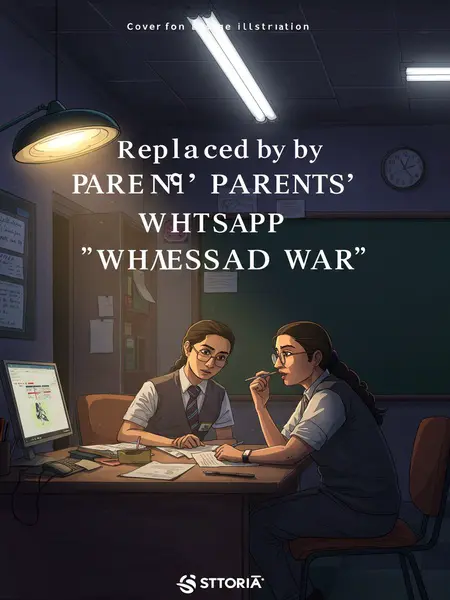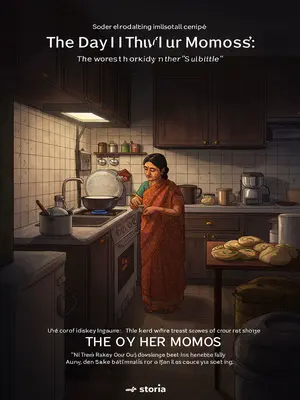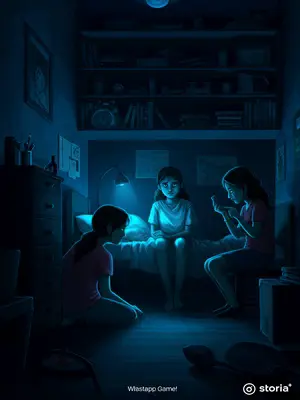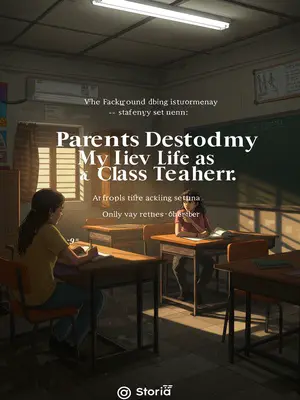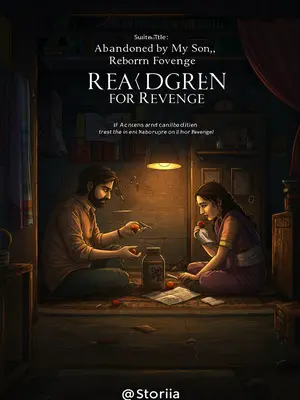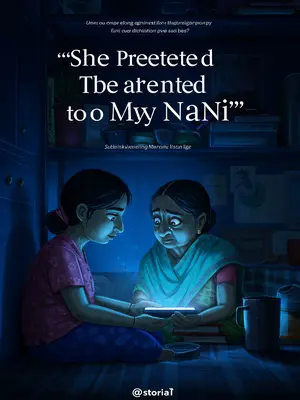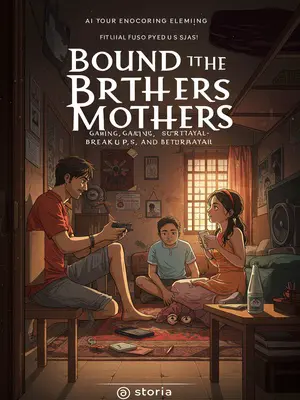Chapter 2: Pressure Cookers and Silent Classrooms
I know Sir Prakash well.
His reputation travels ahead of him—in the staffroom and among students. He’s the type to slap the blackboard with his wooden scale, glare over his glasses, and declare that marks are the only god worth worshipping.
He likes to keep students under his thumb, measuring worth only in marks. Out of fifty in his class, more than half walk around with psychological scars.
Teachers whisper about how his class is a pressure cooker, always on the verge of whistling. I’ve seen his students: dark circles under their eyes, shoulders hunched, their voices barely above a whisper.
Sure enough, the neighbouring class soon had several cases of depression and even suicide attempts.
The corridor outside his class had an eerie silence after hours. No laughter, no cricket bat thwacks—just the faint smell of phenyl, the walls heavy with absorbed stress and tears.
---
I’ve led graduating high school classes for years.
Colleagues call me a veteran, the one who never loses her cool during result season, even when the principal is chewing his nails.
Each year, 60% of my students get into top NITs, 35% into IITs, and the rest into the best private universities. My students’ names always shine in bold on the board exam scoreboard. But for parents, history means nothing; they only want guarantees for their own child.
Since my first two years teaching under a leaky tin roof in rural Bihar, I’ve believed even the quietest last-bencher can shine with the right guidance. Those days taught me patience and jugaad—the art of making do.
But I never expected one day to be attacked directly by my students’ parents.
It stung more than any supervisor’s complaint. The parents had seen their children improve.
"Baaki teachers to ek din ki chhutti dete hain. Aap Saturday ko bhi bacho ko sone ke liye bol deti ho? Unka future kyu khatre mein daal rahi ho, madam?"
Notifications kept lighting up my phone, one after another. I could almost hear the collective sighs from a thousand drawing rooms. Maybe someone even called a cousin in America to rant about this ‘lenient’ teacher.
No matter my experience, no matter how many rebellious students I’d handled—these parents were tougher, more unreasonable than any student troublemaker. It felt like banging my head against a wall.
For the first time in years, a headache started pulsing—one no cup of chai could fix. Scolding a misbehaving child is easy; what do you do when the tantrums come from the grown-ups?
"Mere bachche ko top ten mein aana chahiye tha. Aap ki wajah se board exams ke itne kareeb wo top fifty bhi nahi pahunch pa raha hai! Aap uska future kharaab kar rahi ho."
Did these parents ever sit with their kids and see their struggles after a failed mock test? Of course, it’s easier to blame the teacher than accept your child’s limits—or, God forbid, their happiness.
"Gold medalist ho? Bacchon ko gumrah kar rahi ho bas."
It was almost funny. Yesterday I was the school’s pride; today, I’m the villain, courtesy of a few WhatsApp messages. I imagined my gold medal, tucked in a dusty box at home, shaking its head at me.
"Aapka soft style bacchon ke liye harmful hai."
Apparently, empathy is a vice now. Maybe I should’ve made them stand in the sun for forgotten homework—then I’d be called cruel.
"Mera beta to IIT Bombay ya DU ja sakta tha. Aapne hi bola ki stream zyada important hai, college nahi. Aise kaun sikhata hai?"
I remembered Kabir, the boy with hopeful eyes who wanted Economics instead of Engineering. If that’s heresy, so be it. Not every child has to be an engineer, na?
The parent group was relentless, lines of accusations scrolling endlessly as if the nation’s fate rested on my shoulders.
"Teacher badlo! Aap jaisi teacher se mera bachcha barbaad ho jayega."
Each line stung, but after a while, they all blurred together. The ‘ruin’ they spoke of was really their own anxiety—a beast that can never be tamed.
"Prakash Sir to pura hafte class lete hain. Strict education hi chahiye!"
Sometimes I wonder if parents want to raise children or machines. Maybe both.
They came at me in full force. With two hands, I couldn’t fight off dozens, so I just stepped back.
The group chat was a battlefield, and I, outnumbered, could only retreat with dignity intact.
Me: "Teacher ya class badalna principal ka decision hai. Agar aapko mujhse problem hai, seedha principal se baat kariye."
I sent the message, wiped my brow, and felt a small wave of relief. Let the matter rest with higher authorities; I’d done my part.
After sending this, I stopped reading the personal attacks, flipping my phone face-down. The WhatsApp group DP—a shiny trophy—mocked me from the screen.
My ears rang with angry echoes, but I tried to shut them out. The TV in the next room blared some old Bollywood song—"Zindagi ek safar hai suhana"—and I almost smiled.
Under the tube light’s harsh glow, I glanced at a stack of real board exam papers, edges soft from use, my looping handwriting and doodles waiting for students to discover.
Beside them was a new revision plan, handwritten for each child—"Ayesha, focus on trigonometry" and "Rahul, don’t panic in physics numericals." For me, every student was a universe.
I sat in silence for a few seconds, rubbing my forehead again. My mother’s clatter in the kitchen, the hiss of the pressure cooker—comforting, but I just stared at the ceiling, feeling oddly empty.
Glasses off, pen down, laptop shut. The blue light faded, leaving only the study lamp’s warm yellow. My back ached; I felt every year in my bones.
Doing my best to ignore "samay kisi ka intezaar nahi karta" echoing in my head, I washed up, brushed my teeth slowly—listening to distant street dogs and a neighbour’s TV sasural drama—then pulled the bedsheet over my head, pretending tomorrow would be new.
To hell with what anyone else wants.
My last thought before sleep was simple: Let them do what they want; I’ve done what I can. Tomorrow is another day, and I’m still a teacher.
